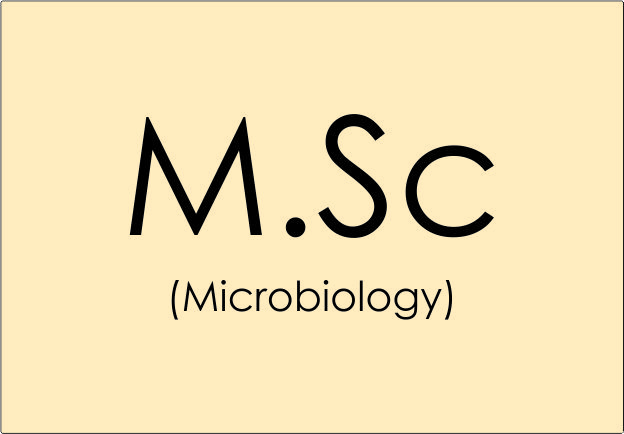The main theme of teaching microbiology course is the application of basic principles of life sciences to develop into technology. Modern biology combines the principles of chemistry and biological sciences (molecular and cellular biology, genetics, and immunology) with technological disciplines (engineering, computer science) to produce goods and services and for environmental management. Tools of molecular biology play an important role in preparation of an engineered clone, a recombinant or a genetically manipulated organism (GMO). The objective of the Master’s Programme in Microbiology is to equip the students with updated knowledge of prokaryotic and eukaryotic cellular processes, microbial taxonomy, biostatistics, molecular biophysics, molecular biology and biochemistry.
The Board of Studies in Microbiology has identified the following thrust areas and prospective plans for syllabi reforms at postgraduate level:
- Microbial diversity: Facets of microbial diversity which includes morphological, structural,metabolic, ecological, behavioral and evolutionary aspects
- Microbial diversity in extreme environments: Properties and application of extremophiles and also includes collecting information of diversity, exploration and utilization of diversity to identify and harvest biomolecules for human health improvisation, microorganisms from extreme environments, Archaebacteria, etc.
- Mathematical approach for Biologists: Numerical Microbiology Problem solving, Concept of mathematical models, Application of Mathematical models to microbiological processes
- Advanced Biochemistry and Molecular Biology Techniques : Chromatography techniques, next generation sequencing methods (Pyrosequencing, Ion torrent, Nanopore sequencing)
- Cell and developmental Biology
- Research Methodology: Use of search engines for scientific data mining, use of reference management tools, statistical data analysis using software
- Microbiology curricula are operated at two levels viz. undergraduate and postgraduate. The underg raduate curricula are prepared to impart basic knowledge of the respective subject from all possible angles. In addition, students are to be trained to apply this knowledge particularly in day-to-day applications of Microbiology and to get a glimpse of research.
Eligibility
- B.Sc. degree with Microbiology as principal subject OR Microbiology as one of the subjects at T.Y.B.Sc.
- level for students with general B.Sc.
- B.Sc. (Blended)
- B.Sc. Nanoscience and Nanotechnology
Career and Jobs
An M.Sc. in Microbiology can lead to a variety of careers, including
- Research associate
- Biomedical scientist
- Microbiologist
- Pharmacologist
- Ecologist
- Science writer
- Food technologist
- Lecturer or professor at a university or college
M.Sc. Microbiology graduates can work in many industries and businesses, including:
Research centers, Academic institutions, Research labs, Agricultural research, Biotechnological research, Medical corporations, Pharmaceutical organizations.
Downloads
| S.No |
Name |
Link |
| 1. |
Syllabus |
 |


